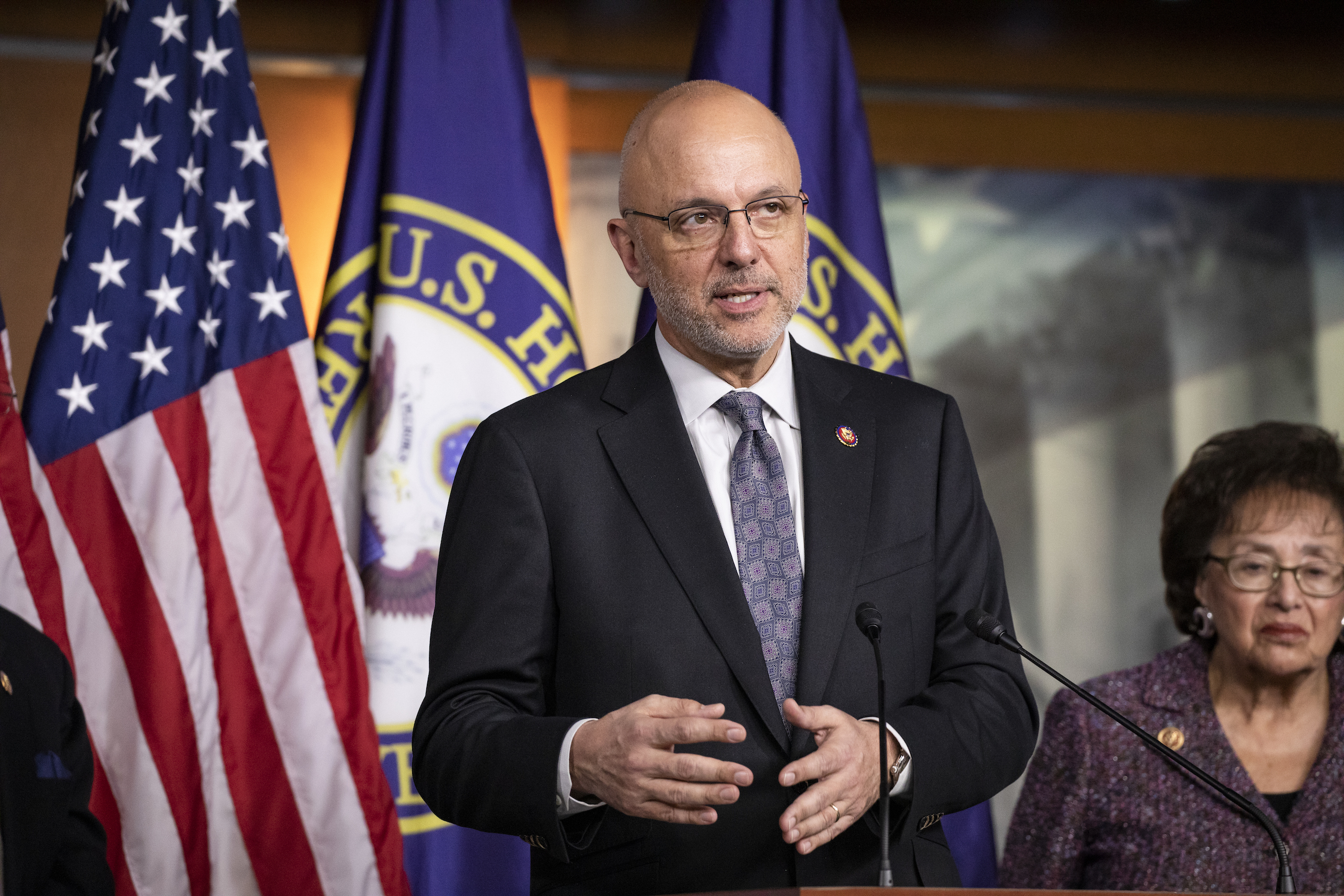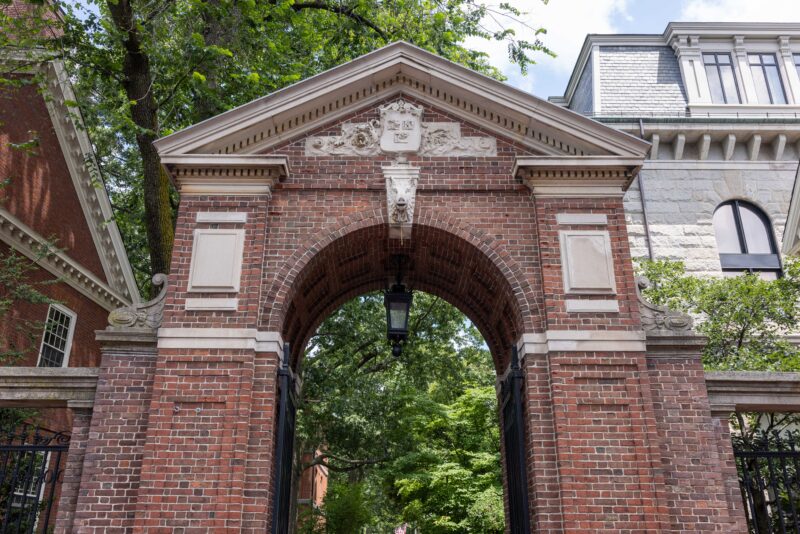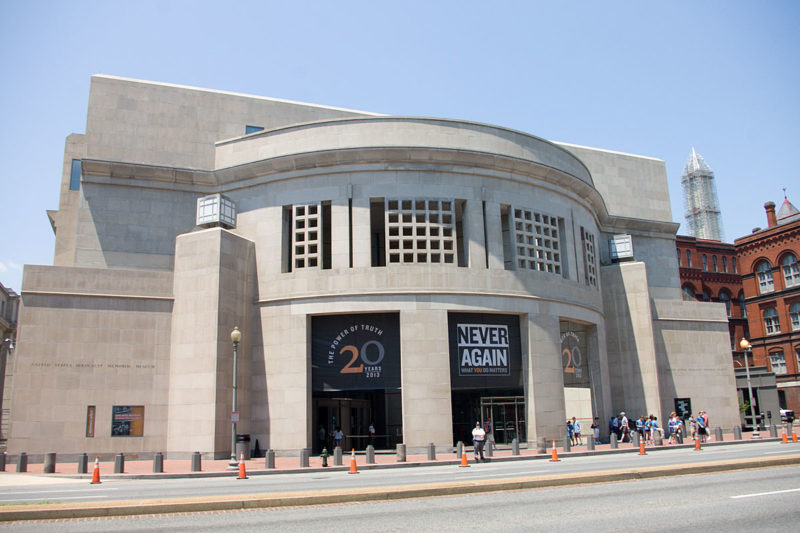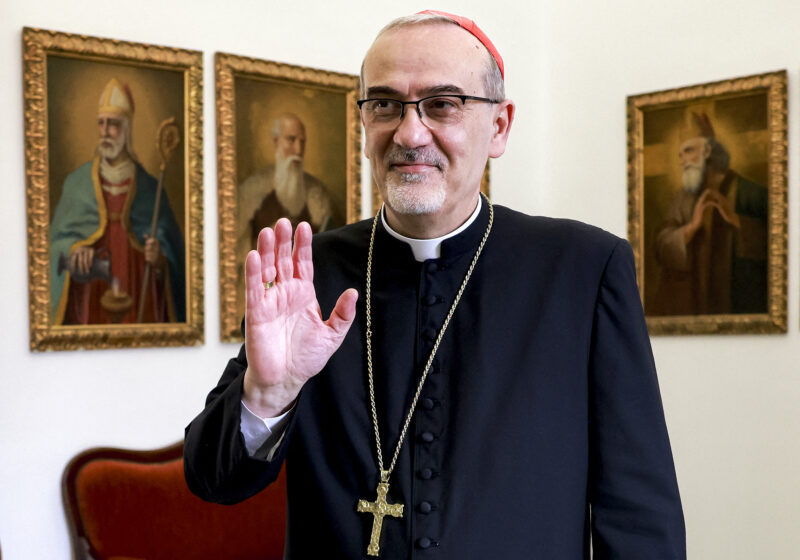
Chip Somodevilla/Getty Images
The House Appropriations Committee adopted amendments to the 2023 State Department and foreign operations funding bill that aim to cut off U.S. funding to the United Nations commission investigating Israel and prevent the U.S. from revoking the Islamic Revolutionary Guard Corps’ terrorist designation.
The full Appropriations Committee voted on a series of amendments to the State, Foreign Operations and Related Programs 2023 funding bill on Wednesday before voting to advance the legislation to the full House.

WOJTEK RADWANSKI/AFP via Getty Images
The House Appropriations Committee’s subcommittee on labor, health and human services, and education reiterated its call for a significant funding boost directed toward supporting Holocaust survivors in its draft 2023 funding bill.
The committee proposed $10 million for the Holocaust Survivor Assistance Program, which provides support — including combating isolation and aiding with physical, mental and cognitive health — for aging Holocaust survivors and their families, as well as elderly victims of other traumatic events. The program was funded at $6 million for 2022, despite the House subcommittee having proposed $10 million for the program last year.

AHMAD GHARABLI/AFP via Getty Images
Unilever, the parent company of Ben & Jerry’s, announced on Wednesday that it reached an agreement with the Israel-based manufacturer of the ice cream products to continue selling in Israel and the West Bank.
Under the new arrangement, Unilever will sell its interests in Israel to American Quality Products Ltd. owner Avi Zinger, whose company has manufactured and distributed Ben & Jerry’s in Israel and the West Bank for more than three decades. “Ben & Jerry’s will be sold under its Hebrew and Arabic names throughout Israel and the West Bank under the full ownership of its current licensee,” Unilever said in a statement.

Rafael Henrique/SOPA Images/LightRocket via Getty Images
Morningstar, Inc., the Chicago-based financial services firm that came under fire earlier this month for providing analytical tools that were found to have a bias against Israel, committed to addressing concerns that the company harbors anti-Israel attitudes at an Illinois investing board meeting last week, according to two individuals present.
In last Tuesday’s meeting, the Committee on Israel Boycott Restrictions subdivision of the Illinois Investment Policy Board (IIPB) voted not to place Morningstar on the state’s “prohibited investment list,” subject to the firm’s implementing of recommendations put forth in a report published by the Foundation for Defense of Democracies (FDD) and a separate independent report commissioned by Morningstar and conducted by New York City-based law firm White & Case LLP.

Samuel Corum/Getty Images
A bipartisan group of nearly 100 House members sent a letter to Homeland Security Secretary Alejandro Mayorkas on Tuesday urging the administration to mount a more concerted effort to counter antisemitism.
“We are asking you to advocate for a comprehensive, whole-of-government strategy, led by your Department, to specifically address the growing problem of domestic antisemitism,” reads the letter, led by Reps. Ted Deutch (D-FL), Brian Fitzpatrick (R-PA), Brad Schneider (D-IL) and Andrew Garbarino (R-NY) and signed by 88 other lawmakers.

JACQUELYN MARTIN/POOL/AFP via Getty Images
Following the success of the March meeting of U.S. Secretary of State Tony Blinken and the foreign ministers of Israel, Egypt, the United Arab Emirates, Morocco and Bahrain, Washington is spearheading an effort to formalize the new framework for regional cooperation, a senior State Department official familiar with the matter said on Tuesday.
“The Negev Forum is a new framework to enhance regional prosperity and security by promoting greater cooperation in a variety of spheres among its members,” the official told reporters following a Monday meeting of the Negev Forum Steering Committee in Manama, Bahrain.

Getty Images
Last fall, Virginia gubernatorial candidate Glenn Youngkin put a bull’s-eye on Toni Morrison’s Pulitzer Prize-winning novel Beloved. It came in the form of an ad that his opponent saw as an attempt to get the book banned in schools because of its vivid portrayal of slavery.
Now, the nationwide book-banning debate has come for the Holocaust, but with a twist. A Saturday afternoon panel at last weekend’s conference of the American Library Association in Washington, D.C., sparked controversy over the panelists’ approach to Holocaust denial.

U.S. House of Representatives
After high-profile spending in a few early primary races that garnered headlines — and controversy — United Democracy Project and Democratic Majority for Israel PAC, both pro-Israel super PACs, have turned their focus to a few upcoming primaries, injecting significant capital into a new set of Democratic races.
Ahead of Tuesday’s primaries in Illinois, Democratic Majority for Israel has spent $540,000 opposing Rep. Marie Newman (D-IL) and supporting Rep. Sean Casten (D-IL). The group also spent $157,000 on digital ads and mailers supporting Chicago City Council member Gilbert Villegas and opposing Illinois House member Delia Ramirez.




































































